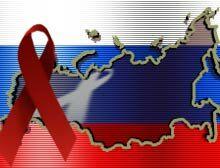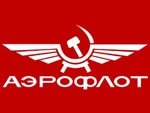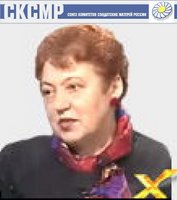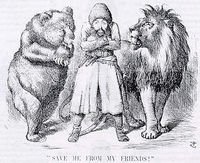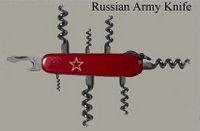 An editorial in Sunday's Washington Post - "Imperialist Gas" - claims that 'Russia doesn't want to "politicize" energy sales. It just wants to use them to bully its neighbors.' Expectations that Russia would restrain itself in its imperial ambitions during the country's 2006 G8 presidency thus seem to have been falsified. Instead, Moscow continues its increasingly aggressive energy policy towards not only its "near abroad" but also European and global markets.
An editorial in Sunday's Washington Post - "Imperialist Gas" - claims that 'Russia doesn't want to "politicize" energy sales. It just wants to use them to bully its neighbors.' Expectations that Russia would restrain itself in its imperial ambitions during the country's 2006 G8 presidency thus seem to have been falsified. Instead, Moscow continues its increasingly aggressive energy policy towards not only its "near abroad" but also European and global markets.
According to the editorial, Alexei Miller, Gazprom chairman, last week threatened EU governments that 'his company will sell its products in other markets unless they give way to its "international ambitions".' The background was reactions against Gazprom plans to buy Britain's largest gas company. Thus, Miller denounced 'supposed Western attempts to "politicize questions of gas supply"' despite the fact that it is now becoming increasingly apparent that Russia is using the "energy weapon" to 'restore Moscow's dominion over neighbours' such as, on the one hand, Russia-defiant Ukraine and Georgia, and on the other hand, Russia-friendly Armenia and Belarus, and in the process affecting energy supplies to EU-countries.
That Putin is serious in projecting Russia's new role as an "energy superpower" also on the European and global markets should now be considered a political fact, not least in view of the consequences of cuts in gas supplies to EU-members in connection to the New Year's Russian-Ukrainian gas crisis. This makes it necessary also to focus on the importance of Russian acquisitions of western energy companies, in addition to focussing on the supply-issue. Would Moscow's influence on the EU energy market involve both supplies and ownership, Europe may become reliant on Russian energy policies across the board, including control of both energy supplies and infrastructure.
This would pose no great problem to Europe, were it not for Moscow's declared amitions to use energy as a political instrument rather than in its more normal role as a profit generator. Nobody would begrudge Russia's gaining profits from a normal energy market, but when it comes to politics, the matter must be considered from a different perspective. Economics is economics - politics is politics. If the Kremlin wants to meddle the two, the West should show greater caution - as indeed with any country displaying similar ambitions.
Since the 1980's, Western governments have put great emphasis on the important principles of free market economy and its separation from interests of state. Today, this has become a key element in international trade and a basis for organisations and arrangements such as the World Trade Organization (WTO) and the Group of Eight (G8) industrialised nations. President Putin's action is therefore testimony to the extent of disregard that Moscow is prepared to show these principles in the safe assertion that Western governments will remain acquiescent to such measures in view of their increasing dependence on Russian energy. That Putin's policy, under normal circumstances, would complicate the Russian G8 presidency and mar Kremlin ambitions to gain membership of the WTO, seems like something Russian leaders turn a blind eye to.
Putin's blatant disregard of the principles of market economy and free trade is also a danger to Russia itself to the same extent as it thretens the stability of the international energy market. There may come a day when gas prices fall or resources falter, and then Putin's policies will be remembered by the West, and Russia possibly be served with the same treatment as the country is treating its neighbours with now. In today's world, a strategy of tit-for-tat is rendered obsolete, and only applied to those that provoke such reactions by their own behaviour. This could potentially be the fate of a Russia that once more may become consumed by crisis due to its own or international economic imbalances. The question is if anyone will care about the Russians then, possibly making them once more the victims of their own state's policies.
What is worst with Russia's current policy is that it testifies to a lingering misperception of the nature of power in our era. Putin is brought up in a tradition where power is an absolute projection of force - in whatever form. The truth of the matter is, however, that modern societies grow and thrive on the basis of relative power - by cooperating and sharing in order to gain the spoils of the greater overall profit this produces. As long as Russia's leaders do neither understand nor implement this logic, there will be room for both misperception and conflicts between Moscow and the West as each party will act according to different paradigms. If Russian behaviour does not change, the country in the end is likely to come out at the wrong end of the stick in its international relations.
 Hardly had protests peaked last week on the law suit brought against the well-known Soldiers' Mothers NGO, before the Federal Registration Office of Russian Ministry of Justice withdrew the suit. As unclarities on the matter still exist, one should however not preclude the possibility that Russia eventually will continue its plans to close down the organisation. At the same time, the matter brought against the Soldiers' Mothers also serves to hide a similar closure of another less well-known but still important NGO - that of Khodorkovsky-founded Open Russia Foundation, Gazeta.ru reports.
Hardly had protests peaked last week on the law suit brought against the well-known Soldiers' Mothers NGO, before the Federal Registration Office of Russian Ministry of Justice withdrew the suit. As unclarities on the matter still exist, one should however not preclude the possibility that Russia eventually will continue its plans to close down the organisation. At the same time, the matter brought against the Soldiers' Mothers also serves to hide a similar closure of another less well-known but still important NGO - that of Khodorkovsky-founded Open Russia Foundation, Gazeta.ru reports.
